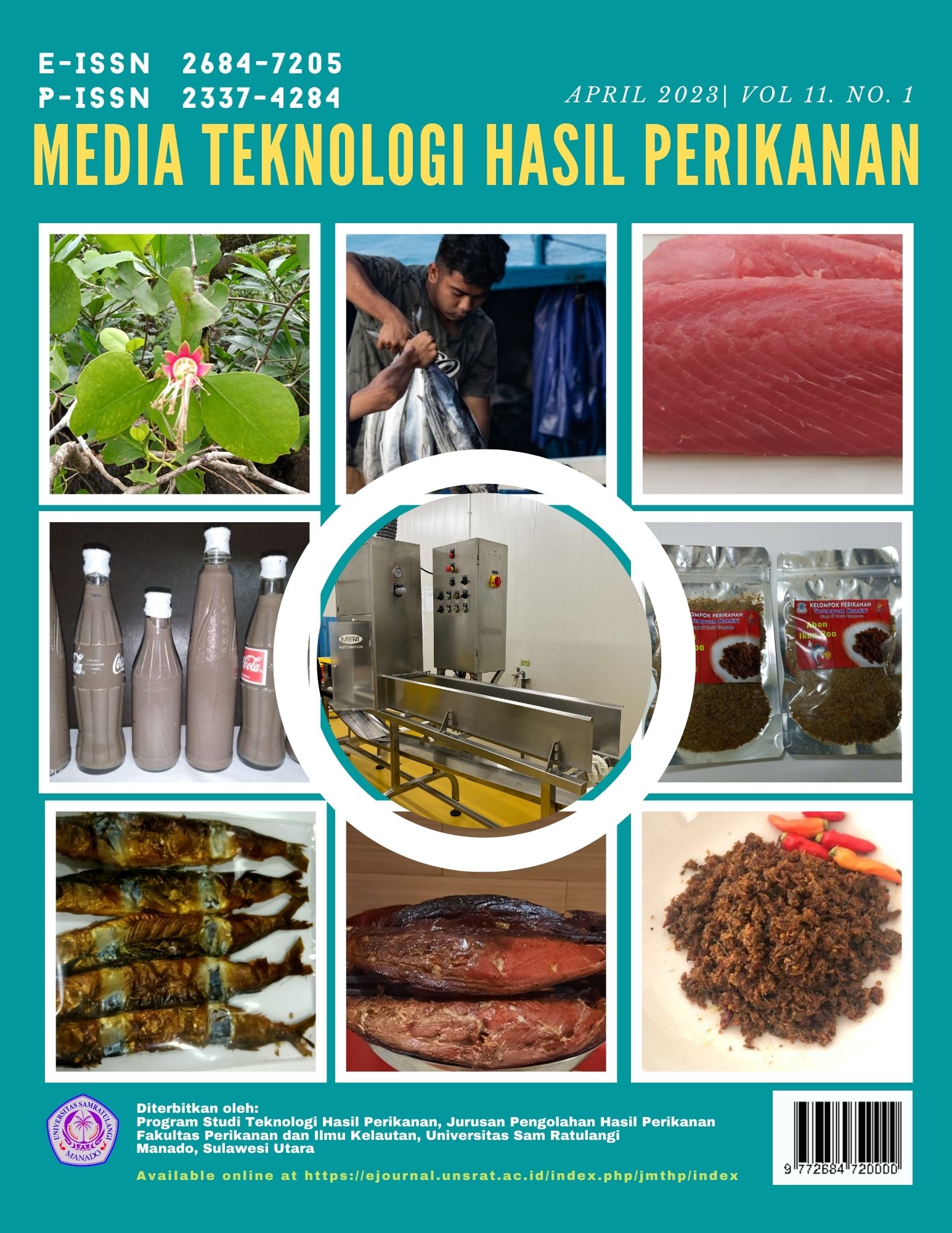Eksperimen Pembuatan Ice Gel Skala Rumah Tangga Sebagai Media Pendingin Cool Box Untuk Ikan Hasil Tangkap atau Pasca Panen
DOI:
https://doi.org/10.35800/mthp.11.1.2023.46474Abstract
The majority of fishermen in the coastal areas of Karawang are traditional fishermen with small boats. The condition of a small boat certainly does not allow for cool storage in the ship's hatch, so that bulk ice cubes are a way out for fishermen to maintain the quality of the fresh quality of the fish they catch so that the selling price does not fall. This research was conducted in the coastal area of Karawang from July-December 2022. The study was conducted by trials of making ice gel with the addition of alcohol and salt. The manufacture of ice gel is carried out on a household scale with ingredients that are easy to obtain and affordable. The results of making ice gel are tested for durability with the following results: Ice gel with added salt has a fast freezing time when compared to ice gel with additional alcohol, ice gel with added salt can maintain cold (freezing) temperatures better than ice gel with additional alcohol. The test results of fish samples stored using ice gel with the addition of salt have less ALT value than ice gel with the addition of alcohol, meaning that bacteria do not develop much in fish stored with salt ice gel so that the quality of fish freshness is maintained properly.
Downloads
Published
How to Cite
Issue
Section
License
Copyright (c) 2023 Media Teknologi Hasil Perikanan

This work is licensed under a Creative Commons Attribution-ShareAlike 4.0 International License.
Authors who publish with this journal agree to the following terms:
- Authors retain copyright and grant the journal right of first publication with the work simultaneously licensed under a Creative Commons Attribution License that allows others to share the work with an acknowledgement of the work's authorship and initial publication in this journal.
- Authors are able to enter into separate, additional contractual arrangements for the non-exclusive distribution of the journal's published version of the work (e.g., post it to an institutional repository or publish it in a book), with an acknowledgement of its initial publication in this journal.
- Authors are permitted and encouraged to post their work online (e.g., in institutional repositories or on their website) prior to and during the submission process, as it can lead to productive exchanges, as well as earlier and greater citation of published work (See The Effect of Open Access).






